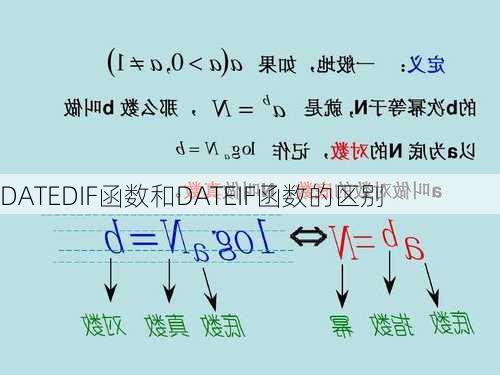DATEDIF函数和DATEIF函数的区别
DATEDIF函数和DATEIF函数在Excel中都是用于计算两个日期之间的差异,但它们之间存在一些关键性的区别。以下是根据搜索结果得出的主要区别:
The
first
and
most
obvious
difference
lies
in
the
function
name
and
its拼写.While
the
correct
function
name
is
`DATEDIF`,
some
users
may
mistakenly
write
it
as
`DATEIF`.This
is
important
to
note
because
using
the
incorrect
function
name
will
not
return
the
expected
results
.
Both
functions
are
used
to
calculate
the
interval
between
two
dates,
but
they
have
different
return
types
based
on
the
specified
unit
parameter.The
`DATEDIF`
function
can
calculate
the
difference
in
days,
months,
or
years,
while
the
`DATEIF`
function
is
not
a
recognized
function
in
Excel
and
may
not
work

as
intended
.
Function
`DATEDIF`
is
a
hidden
function
in
Excel,
which
means
it
is
not
listed
in
the
standard
function
library.It
is
still
available
for
use,
but
users
need
to
be
aware
of
its
existence
and
know
how
to
invoke
it
correctly.On
the
other
hand,
the
`DATEIF`
function
is
not
a
valid
function
in
Excel,
so
it
cannot
be
used
in
calculations
.
The
syntax
for
the
`DATEDIF`
function
is
`DATEDIF(start_date,
end_date,
unit)`,
where
`start_date`
and
`end_date`
are
the
two
dates
being
compared,
and
`unit`
specifies
the
type
of
difference
to
be
returned
(e.g.,
days,
months,
years).The
`DATEIF`
function,
if
it
existed,
would
likely
follow
a
similar
syntax,
but
since
it
is
not
a
recognized
function,
the
syntax
may
be
different
or
invalid
.
Scenarios
The
`DATEDIF`
function
is
commonly
used
in
various
scenarios
such
as
calculating
age,
interval
time,
or
calculating
days
between
two
dates.It
is
a
versatile
function
that
can
handle
different
daterelated
calculations.The
`DATEIF`
function,
being
nonexistent,
would
not
have
these
usage
scenarios.
In
conclusion,
the
main
difference
between
the
two
functions
is
their
availability
and
functionality.Users
should
be
cautious
when
using
the
`DATEDIF`
function
and
ensure
they
are
using
the
correct
syntax
and
parameters.Attempting
to
use
a
nonexistent
function
like
`DATEIF`
will
not
yield
the
desired
results.